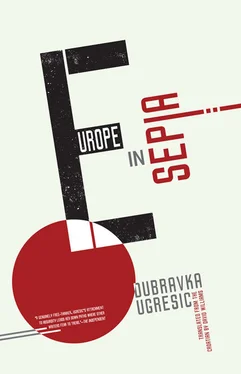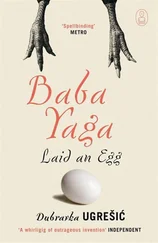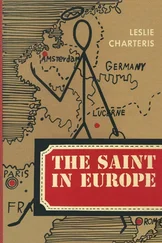The city hall episode isn’t the most judicious of examples, I can admit that. It’s hard to believe powerful moments of cognition occur smack bang in the middle of city halls, and it’s harder still to believe that the realization is hitting me again at this very moment ( Hey, sister, where you been all your life?! ). Yet it is equally unbelievable to think that men and women are, at any given moment, conscious of the dictates of gender in both their professional lives, and in life in general; that every move they make is not guided by this consciousness. In literary life, this consciousness usually strikes by stealth, like a betrayal, a knife in the back, inevitably so torturous we immediately erase it or fob it off for another day ( Ah, I’ll think about it tomorrow! ). But tomorrow we delete it all again, fatalistically reconciling ourselves with the order of things, each of us alone, as lonely as a samurai. “Things are the way they are,” we say, playing blind man’s bluff, ready to swallow the insult, marching on, tormented by the same anxiety — the anxiety of authorship — that forever begs mastery anew. Saddest of all, and psychologically the most interesting, the exclusion of women is inevitably accompanied by the silence of other women, who lack the will to intervene.
In contrast to most women, the vast majority of men feel very comfortable in the literary world. Literature is their territory, they’re well “at home”; literature is their armchair, their pair of slippers, their pipe to smoke. The history of literature is the history of men — poets, novelists, dramatists, essayists, thinkers, philosophers; it’s friends and buddies , talking heads and fellow players, idols and inspirations. Literature is an extended male family. Although female authors have participated in professional literary life for some two centuries , 1they’re still classed as arrivistes, immigrants, and stowaways. Most men mentally address their work to other men, and most women address theirs to men too. Literature is a man’s playing field, men jockey for the ball; women can only sit on the sidelines and cheer. Of course, male “players” don’t have anything against women, they’re just not that interested in them; most often, women simply aren’t in their field of vision. Men can’t conceive of sharing the turf with women, but sure, they’re welcome as cheerleaders. On the literary playing field, the “cheerleaders” include translators, librarians, editors, agents, studious critics (of the male oeuvre), archivists. Isn’t it best we all work where we’re most at home? Men feel at ease in literature, they’re masters of polemicizing among themselves, backscratching and backbiting, appearing in public together, critiquing each other, devising little strategies, swimming in formations like dolphins, forming literary clans, backslapping each other, savaging each other — and all the while they mentally hold each other’s hands, as men in some regions do in real life. This collegial intimacy is sometimes so overpowering that they refer to their literary buddies by first or nick names, smug in the assumption that their readers and audiences will know who they’re on about.
Female writers remain invisible until they speak the language of pornography, or the language of money, the “male tongue.” Then they dominate the bestseller lists. Asked who inspires her, current dominatrix E. L. James rattled off names of women writers who plough similar territory, sending out a clear message in the process: In the literary world of financial profit, women hold pole position — their idols and inspiration “sisterly” writers, the millions who deliriously consume their products, also women.
The question of whether what E. L. James writes is literature, and if it’s not, then what is literature, is today completely irrelevant. “If literature has died, literary activity continues with unabated, if not increased vigor,” wrote Alvin Kernan in his long-forgotten The Death of Literature. The word literature is bidding its farewell to everyday language use, and trundling along with it are critical frames of reference and the very language of criticism. New terms are now in circulation: the publishing industry , the writing industry . What the writing industry intends to call the worker or “direct producer” remains to be seen. Maybe the current appellation of “content provider” will prevail.
If women rule the bestseller lists, men remain firmly seated in the first rows of so-called “serious” literature. At least that’s how it is in the Yugozone, in the literatures of the former Yugoslavia. Once friends, for a time political enemies, Yugozone writers are now buddies again. Not only do the “brothers” stick tight when among their own, they also click together like magnets in “fraternal” multiethnic and multi-national formations (a Serb and a Croat, a Croat and a Montenegrin, a Montenegrin and a Serb, all together with a Bosnian or an Albanian, you get the picture). Why is male bonding so attractive in the literary world? For two reasons: The first is ineluctably socio-biological (even male dolphins swim in formations!), the second purely financial. In any case, these are the very tendencies supported by the cultural structures of the European Union, which understands culture as a sedative for calming interethnic tensions, as a kind of yoga, a means of transport (cultural exchange, etc.), a bridge (that links nations), as a diplomatic strategy (culture knows no borders), as a potential tourism windfall, as everything and anything. Writers themselves have done the math and the figures don’t lie: The new national markets (Croatian, Serbian, Bosnian, and Montenegrin) are simply too small. And who would have thought — the language of those literatures is the same after all!
With the advent of new media, public displays of male literary affection have blossomed into a genre. Affectionate email exchanges between two writers, TV appearances (a writerly coupling or three-some with a friendly brother in the middle, a hostess taking on the fraternal foursome); live appearances (a team of buddies performing); essays on autobiographical “bromances,” they’re all irreducibly male genres. And what of the female role in these fraternal literary relationships? As the brothers conclude tapping the veins of each other’s wisdom, a woman’s name will suddenly bleed out. “Say hi to Cica!” “And you say hi to Mica!” Cica and Mica are the brothers’ partners.
Stumbling across this kind of literary “material,” foreigners might think it the spawn of Balkan blood brotherhoods, or else a special kind of homoerotic Balkan soft-porn. Thank God this “material” almost never makes it beyond the borders of the Yugozone, so no one thinks about it at all. But if the material did indeed find legs, it could be that people in other parts of the world would think it completely natural, little different to what they’ve already seen among their own. Let’s not forget, men mentally hold each other’s hand everywhere , it’s just here and there they hold hands for real. I mean, who was it that hustled their way into Rembrandt’s famous picture? Those who had the money to buy a ticket to eternity: the boys, the buddies, the “night-watchmen,” the “Indians.”
It’s enough to do a little google of the most important European literary prizes, to click on the rubric “previous winners,” and the humiliating evidence speaks for itself. One of the most significant annual European prizes for contribution to European culture, society, and social science (a prize awarded by one of the most declaratively tolerant and democratic European states) is this year celebrating its sixtieth anniversary. In the sixty years of its existence, a woman has won the prize once. The fact that one year the prize was shared by three men and a woman (her name was Marguerite Yourcenar), and another year went to a married couple, is hardly a corrective. The result (59-to-1) reveals one of two possible things: Either women are mentally backward, which would explain men’s absolute intellectual supremacy, or women are systematically exposed to chronic professional discrimination. Maybe professional discrimination is but a form of that “ontological lack” that men — in possession of that infamous appendage — have foisted upon women as an enduring physical failing and inadequacy.
Читать дальше












